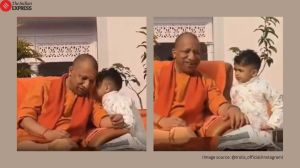Talking It Over
The engaging collection of essays in The Argumentative Indian are an exercise in retrieval. Sen recovers and invigorates a conception of Ind...

The engaging collection of essays in The Argumentative Indian are an exercise in retrieval. Sen recovers and invigorates a conception of India that has been under assault from different directions. The dominant construction of India in the West has emphasised its religiosity and mysticism. Against them Sen wants to recover its capacity for heterodoxy and rationality. Hindu nationalists have been arguing for a singular and purified interpretation Indian culture. Sen, by contrast, wants to emphasise its pluralistic and composite character. Many thoroughgoing modernists are embarrassed by India8217;s traditions. To them Sen demonstrates that there is much in those traditions that is compatible with and can energise modern values of rationality and toleration. For those who would reduce culture to simply a ruse of power, a trap that subordinates all but the most privileged, Sen reminds us of our culture8217;s capacity to worry about its own injustices. Against those who think India is mired in the pieties of certainty, Sen wants to assert its capacity for doubt. In opposition to those who would circumscribe Indian identity by closed horizons, Sen argues that the greatness of India would consist in precisely not seeing itself as a world apart, unconnected with the rest of the world. And against those who would take its identity as fixed, Sen reminds us of India8217;s argumentative culture, its capacity for exchanging reasons and arguments.
Sen reminds us, to use a phrase of Edmund Burke8217;s, that we have a choice of inheritance. We always have to choose what we make of our past. Our identity is something that acquires significance through an act of choice. In that sense, history alone cannot and does not determine who we are and what we aspire to become. Sen wants us to choose an inheritance that, in part, has sustained democracy and is more in tune with the pluralism of Indian society, than the aspirations of those who would abridge this culture of argument and reason in the name of identity.
Sen very delicately avoids the risks associated with this kind of argument. He never lets an appreciation of India8217;s traditions shade over into the easy triumphalism about India8217;s superiority. His foremost objective is to restore a genuine intellectualism about this tradition by restoring a sense of curiosity that has all been lost in the monumental invocations of Indian tradition that both its defenders and critics often deploy in their arguments. Indian arguments are worth listening to, not because they are Indian but because they are good arguments. The result is a very wide ranging collection of essays, written with characteristic clarity and grace.
The first half is broadly an account of India8217;s argumentative traditions. It is a world teeming with arguments about the nature of world, about mathematics, moral dilemmas and property rights. Forget collective identity, even connubial felicities are constantly being interrupted by metaphysical disputations. Think of Gargi and Maitreyi upstaging their husbands. The essays on Tagore and Satyajit Ray recover the possibilities of a rooted cosmopolitanism.
But the book works best as an exercise in edification rather than a diagnosis of India8217;s current predicaments. Can the distinction between reason and unreason, the religion and rationality, the tolerant and the intolerant, on which much of the argument rests be so confidently made? India does look like a pluralistic mosaic, from a bird8217;s eye point of view. But isn8217;t that quite compatible with, indeed may it not pre suppose lots of different groups, inhabiting closed horizons? Can pluralistic culture be possible without each of its constituent parts acknowledging the value of pluralism? And some might worry that in his attempt to recover a serviceable past, Sen leaves out too much
of what has animated India. He likes the fact that we argue, but is ultimately uncomfortable with most of the things we argue about.
- 01
- 02
- 03
- 04
- 05































